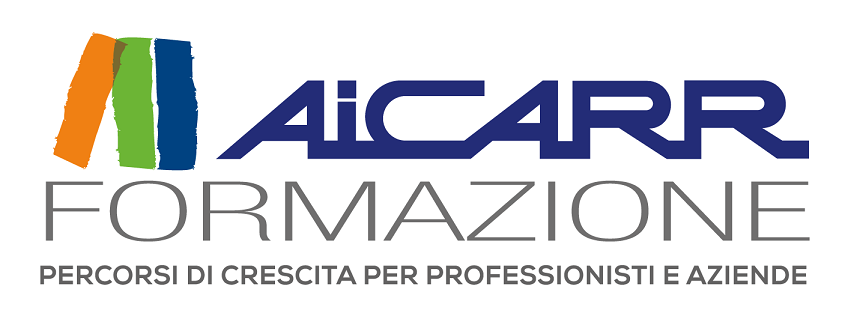

AiCARR Educational Srl

Metropolitan City of Milan, Italy
September 2024
Other education
Service with Minor Environmental Footprint
Italy
AiCARR Educational srl – Società Benefit eroga corsi incentrati sulle tematiche del benessere sostenibile, del condizionamento dell’aria e, più in generale, delle tecnologie impiantistiche per la produzione, la distribuzione e l’utilizzo dell’energia termica in ambito civile e industriale. La sua offerta didattica, completa e flessibile, risponde alle esigenze di formazione e aggiornamento di professionisti e tecnici di aziende e amministrazioni che operano nel settore della climatizzazione al servizio del benessere e del risparmio energetico ponendo sempre la massima attenzione ai temi connessi alla sostenibilità ambientale, nell'ottica di una decarbonizzazione sempre più spinta degli edifici. I docenti di AiCARR Educational sono oltre cinquanta tra professionisti che provengono dal mondo della progettazione, dell’installazione, degli enti di controllo, della consulenza, della gestione impianti con una esperienza professionale consolidata e riconosciuta anche a livello internazionale. I partecipanti ai corsi possono apprendere dalla viva voce dei massimi esperti in materia le conoscenze relative alla tematica di interesse e stabilire con loro un contatto che può proseguire anche oltre l’esperienza formativa in aula. AiCARR Educational è dunque a supporto del lifelong learning
Overall B Impact Score
Governance 16.7
Governance evaluates a company's overall mission, engagement around its social/environmental impact, ethics, and transparency. This section also evaluates the ability of a company to protect their mission and formally consider stakeholders in decision making through their corporate structure (e.g. benefit corporation) or corporate governing documents.
What is this? A company with an Impact Business Model is intentionally designed to create a specific positive outcome for one of its stakeholders - such as workers, community, environment, or customers.
Workers 33.3
Workers evaluates a company’s contributions to its employees’ financial security, health & safety, wellness, career development, and engagement & satisfaction. In addition, this section recognizes business models designed to benefit workers, such as companies that are at least 40% owned by non-executive employees and those that have workforce development programs to support individuals with barriers to employment.
Community 22.8
Community evaluates a company’s engagement with and impact on the communities in which it operates, hires from, and sources from. Topics include diversity, equity & inclusion, economic impact, civic engagement, charitable giving, and supply chain management. In addition, this section recognizes business models that are designed to address specific community-oriented problems, such as poverty alleviation through fair trade sourcing or distribution via microenterprises, producer cooperative models, locally focused economic development, and formal charitable giving commitments.
What is this? A company with an Impact Business Model is intentionally designed to create a specific positive outcome for one of its stakeholders - such as workers, community, environment, or customers.
Environment 10.5
Environment evaluates a company’s overall environmental management practices as well as its impact on the air, climate, water, land, and biodiversity. This includes the direct impact of a company’s operations and, when applicable its supply chain and distribution channels. This section also recognizes companies with environmentally innovative production processes and those that sell products or services that have a positive environmental impact. Some examples might include products and services that create renewable energy, reduce consumption or waste, conserve land or wildlife, provide less toxic alternatives to the market, or educate people about environmental problems.
Customers 22.1
Customers evaluates a company’s stewardship of its customers through the quality of its products and services, ethical marketing, data privacy and security, and feedback channels. In addition, this section recognizes products or services that are designed to address a particular social problem for or through its customers, such as health or educational products, arts & media products, serving underserved customers/clients, and services that improve the social impact of other businesses or organizations.
What is this? A company with an Impact Business Model is intentionally designed to create a specific positive outcome for one of its stakeholders - such as workers, community, environment, or customers.